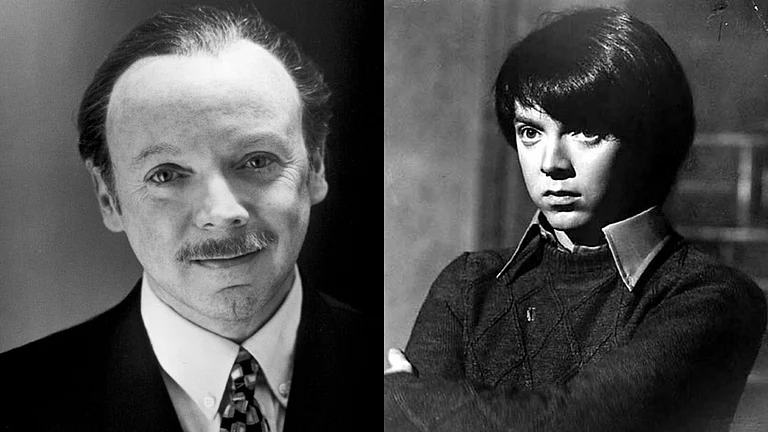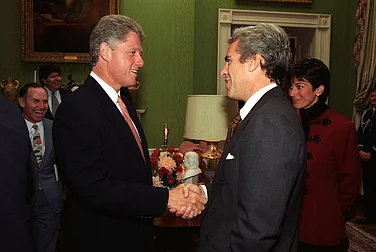While over 20,000 medical students, who fled strife-torn Ukraine to come to India, face an uncertain future, more than 10,000 aspiring doctors studying in the Philippines share a similar fate. But, no one is talking about them. There is no war taking place in the Philippines, but this is due to an order passed by the medical education regulator National Medical Commission (NMC).
The NMC, in a communication with the Indian Embassy in the Philippines, has said that it will not consider the bachelor of science course (also known as BS Biology or bridge course) as a part of medical education to be recognised in India. BS Biology is an 18-24 month course which every student in the Philippines has to undertake before they take the second 48-month-long main course called the doctor of medicine (MD).

“If the NMC excludes this bridge course, the whole medical education of the Philippines becomes invalid for Indian students, as its MD course is only of 48 months duration, whereas the NMC’s notification mandates approval to a course with a minimum duration of 54 months,” B. Harshavardhan, a student studying medicine in the Philippines says.
He, along with many other, have now approached the High Court of Delhi for intervention in the matter after their protest outside the NMC office in Delhi earlier this month yielded no results. These students allege that the NMC order, which invalidates one to two years of their studies, is illegal and shatters their dreams to become doctors in India.
NMC Guidelines
On November 18, 2021, the NMC notified the National Medical Commission (Foreign Medical Graduate Licentiate) Regulations, 2021, which has already been challenged in courts for having several provisions in violation of settled legal principle and the Supreme Court judgements.
The MBBS course in India spans over 60 months—4.5 years of studies and one year of internship. Under the NMC regulation, a medical degree obtained from abroad becomes a qualifying norm for the candidate to practice in India if its course had a minimum duration of 54 months. The 48-month-long MD course in the Philippines alone is not enough to meet this criterion unless the BS Biology course is recognised with it.
The erstwhile regulator the Medical Council of India (MCI) used to give recognition to both the BS and MD courses of the Philippines together as a complete curriculum for a graduate medical course. Hence, under the previous regime, students returning to India after completing the BS Biology and MD courses in the Philippines were allowed to appear for the screening test to practise in India.
The NMC says that it will protect those students who have already been admitted to the MD programme before November 18, 2021. Foreign education counsellors say that the problem is for two categories of students. The first ones are those who have taken admission in the MD programme after November 18, 2021. “The second category of students are those who have taken admission in the BS Biology course in 2019 and 2020, hoping that after clearing their BS Biology course, they will take admission in MD, complete it, come to India and appear for the exit exam. The NMC says that it will not protect students already admitted in the BS Biology course,” Anuj Goyal, a student counsellor, who have helped many students get admission in colleges in the Philippines, says.
The NMC notification has not only put a question mark over the future of medical students studying in the Philippines, their parents are worried on account of the heavy cost of these courses they have already incurred. Ajay Kumar Chaturvedi, father of an affected student Aniket, says, “The total cost for medical education in the Philippines comes around Rs 25 lakh to Rs 30 lakh. Many students have already paid a substantial amount of money to Philippine colleges. If the NMC wants to implement its new rule, it can do so prospectively, without impacting the career of those students who have already taken admission in BS Bilogy before the date of the notification.” He wants the government to step in and ask the NMC to withdraw the notification.
Legal Battles Ahead
Legal experts say that there are several provisions in the National Medical Commission (Foreign Medical Graduate Licentiate) Regulations, 2021, which may not stand judicial review, as the NMC has made regulations in excess of powers conferred by the NMC Act and discriminates foreign medical graduates vis-a-vis Indian medical graduates on several counts.
Shikhar Ranjan, former law officer of erstwhile MCI, says that the regulation treats candidates who want to pursue or are already pursuing undergraduate medical courses from foreign countries in an unfair and discriminatory manner. “The regulation seeks to have an extraterritorial operation of Indian law, for it provides that the medical education curriculum of foreign medical institutions shall be commensurate with the MBBS curriculum prescribed by the NMC,” Ranjan says.
He adds that the NMC regulation goes against the authoritative pronouncement of the Supreme Court in the May 2011 judgement in the Medical Council of India vs J. Saai Prasanna & Ors case. A senior lawyer, associated with medical college cases in the Supreme Court, agrees with Ranjan and says that the apex court held in the cited case that “for examining the validity of the medical qualification granted by a medical institution in any country outside India, the norms and tests of the country where the medical institution is situated, will have to be fulfilled for recognition of the degree in that country and the norms that are prescribed by the Indian Medical Council Act, 1956, regarding Indian medical institutions will have no relevance”. He said, while requesting anonymity, “The NMC has no power to overstep its own act and make such regulations.”
The NMC did not respond to questions about the fate of the students pursuing medical education in the Philippines.


























